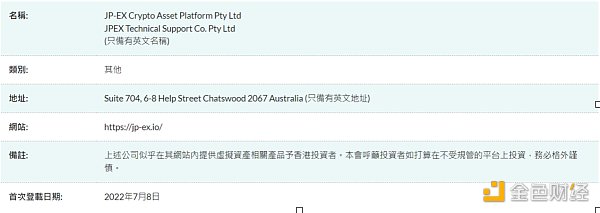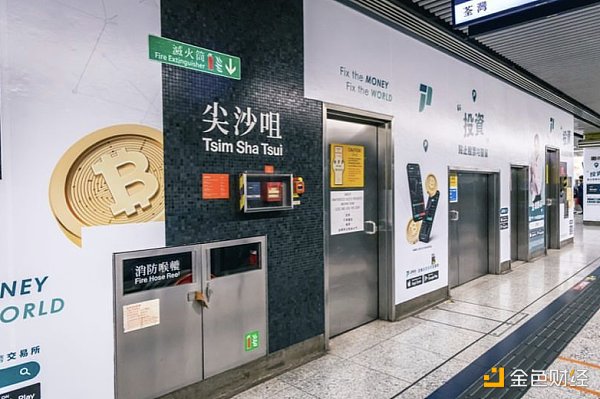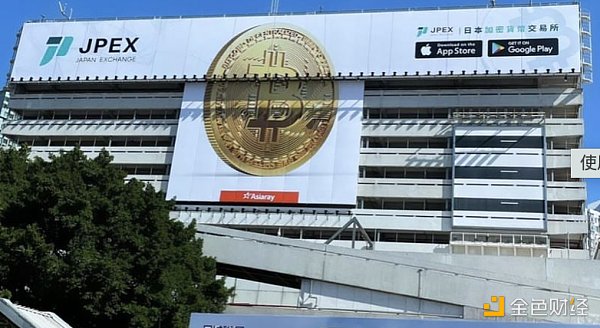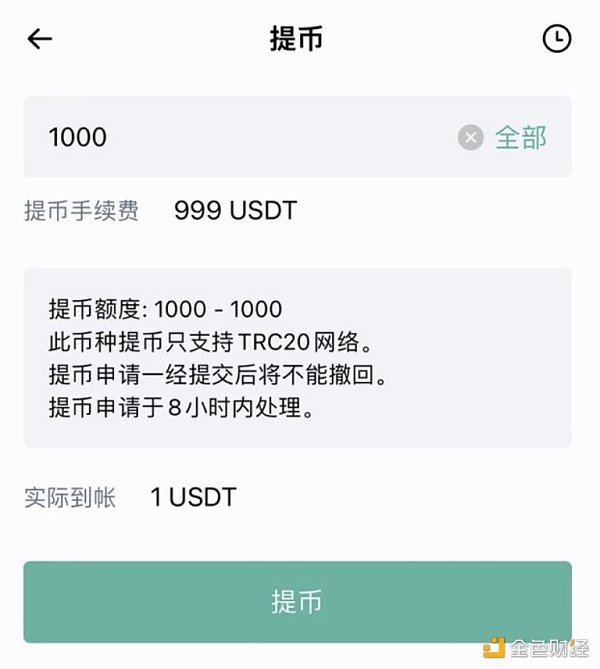Lawyer interprets CSRC’s warning to JPEX Transition period does not mean no regulation, all exchanges must comply with new regulations.
CSRC warning to JPEX Transition period not exemption from regulation, all exchanges must comply.Author: Lawyer Wu Wenqian (Gilbert Ng)
On September 13th, the Hong Kong Securities and Futures Commission issued a “Warning Statement on Unregulated Virtual Asset Trading Platforms” (hereinafter referred to as the “Statement”).
The Securities and Futures Commission expressed its attention to a virtual asset trading platform named “JPEX”, which promotes its services and products to the Hong Kong public through internet celebrities (KOLs) and exchange shops. The Securities and Futures Commission specifically criticized JPEX Exchange for six issues:
(a) JPEX claims on its website to be a “licensed and recognized digital asset and virtual currency platform,” but this is not true. JPEX claims on its website that it operates under the Dubai regulatory agency VARA, but JPEX is not listed as an official licensee by VARA.
- New cryptocurrency travel regulations take effect in the UK, comparing the similarities and differences in travel regulations among countries.
- Hong Kong proposes four innovative policies to promote economic development in the Web3 era.
- EU Cryptocurrency Regulation Entering the Era of Unity Historical Review and Future Outlook
(b) The Securities and Futures Commission has received complaints that retail investors have been unable to withdraw virtual assets from their accounts opened on JPEX, or they have found that their account balances have been reduced and altered.
(c) Various internet celebrities or social media have also claimed that JPEX has applied for a VASP license in Hong Kong, but the Securities and Futures Commission has not received any application from JPEX.
(d) Some products on the JPEX platform involve “deposits” and “earnings” (I understand this to mean “staking” or “earning”), which are not allowed under the regulation of the VASP by the Securities and Futures Commission.
(e) JPEX offers extremely high returns on some of its products. The Securities and Futures Commission specifically warns investors about those “generous and incredible investment opportunities” and states that any fraudulent misrepresentation or misrepresentation of facts is a crime.
(f) JPEX promotes on its website a business cooperation with a listed company in Hong Kong, but in fact, this cooperation has been terminated.
The Securities and Futures Commission also stated that it is aware that internet celebrities and exchange shops have been asked to stop promoting JPEX. In addition, the Securities and Futures Commission also stated that it will take action against individuals who do not comply with the VASP platform system.
Today, the police have also confirmed whether there is any criminal element in the investigation.
In fact, one month ago, the Securities and Futures Commission had already issued a warning.
On August 7, 2023, the Securities and Futures Commission issued a press release warning against virtual asset trading platforms with improper business practices. This warning was specifically directed at JPEX. The warning highlighted the Securities and Futures Commission’s discovery of certain unlicensed virtual asset trading platforms falsely claiming to have submitted license applications to the Securities and Futures Commission. These false and misleading claims led the public to mistakenly believe that these trading platforms complied with the Securities and Futures Commission’s regulatory requirements. These actions are clearly criminal.
In addition, the Securities and Futures Commission also found that some exchanges with Hong Kong clients have established new companies to provide virtual asset services in Hong Kong and have announced their intention to apply for licenses for these new companies. The Securities and Futures Commission pointed out that these exchanges may offer derivative trading services to clients through either their old or new companies, or provide products such as “deposits,” “savings,” or “earnings” that are not allowed under the new VASP regulatory framework. These non-compliant activities will directly affect the exchanges’ applications for licenses because the Securities and Futures Commission will consider whether they have a sincere willingness to rectify their non-compliant activities. As far as I know, the Securities and Futures Commission has quietly investigated these exchanges.
JPEX Background
In fact, the China Securities Regulatory Commission (CSRC) had already listed JPEX as a suspicious website as early as July 2022.

(Image source: CSRC official website)
JPEX had already caught the attention of the CSRC. Initially, JPEX was named “JaLianGuain Exchange”, but neither of them is a licensed exchange by the Japanese FSA. Later, it was renamed JPEX.
In Hong Kong, many people should be familiar with the name JPEX. Since 2021, JPEX has been advertising in different Hong Kong subway stations.





(Image source: JPEX Instagram)
After this statement was released, JPEX also responded to the CSRC on its website, indicating “intention and plans to apply for a license”. However, due to the unfair pressure from the CSRC, JPEX will consider canceling its license application in Hong Kong.
Regarding the rumor that JPEX suddenly restricted the withdrawal limit to 1000 USDT and charged a fee of 999, JPEX announced on its website that “the platform will gradually adjust the withdrawal fee based on the CSRC’s response and phase out the withdrawal limit”.

(Image source: Twitter X)
Interpretation of the Event
Regarding the issues with the JPEX platform itself, I believe the CSRC, media, and the cryptocurrency community will eventually reach a conclusion, and it is not necessary for me to comment. However, regarding the entire event, the following interpretations can be made:
(1) The CSRC has not taken enforcement actions against exchanges until now. At this time, before the issuance of licenses under the new VASP regime, the CSRC may need to first eliminate some bad actors and exclude those who use the CSRC license for promotion but have no intention of applying. It also sends a message that the transition period does not mean a period without regulation, but provides a period for exchanges intending to apply for licenses to gradually rectify any non-compliance issues. After June 1st, all exchanges need to comply with the new regulations.
(2) After June 1st, products that are not allowed or non-compliant cannot be listed on Hong Kong exchanges. There is no transition period for these products; if they are illegal, they are illegal. These products include derivative products, “earning”, and “staking” products.
(3) For exchanges that enjoy a transition period, i.e., those that have exchange operations in Hong Kong and intend to apply for licenses, if they promote non-compliant products to the Hong Kong public after June 1st, whether on existing exchanges or on new exchanges specifically used for applying for Hong Kong licenses, it will affect the license application in Hong Kong. The CSRC will consider whether the exchanges really intend to comply with its regulations. Moreover, if there are any non-compliant activities during the transition period, the CSRC will consider whether these activities can be reasonably avoided and whether the applicants have a sincere intention to rectify non-compliant activities.
(4) The promotion of exchanges is a very important aspect. According to the definition of Hong Kong laws, whether an exchange needs a Hong Kong license and whether it needs to comply with the regulations of the Securities and Futures Commission depends on whether the exchange promotes virtual currency services to the Hong Kong public. This promotion mainly depends on the actions and content of the promotion. Traditionally, there have been a series of restrictions on the promotion of securities, so the promotion of virtual currency should be even stricter. Overseas, I believe that the regulations for promoting virtual currencies are similar to the regulations for promoting gambling licenses, and they are more stringent than the general restrictions on securities promotion. Today, Bybit announced that it is considering withdrawing from the UK market due to the strict promotion regulations of the UK Financial Conduct Authority (FCA). By the way, in some overseas companies with gambling licenses, all promotional materials, scripts, images, and even the text on all social platforms need to be approved by the legal compliance department before they can be released.
About the Author
Gilbert Ng is a Hong Kong lawyer specializing in the fields of financial technology, blockchain, and digital currencies. He was formerly the former legal head of two digital currency exchanges, OK Group, and the head of all overseas legal affairs for Huobi Group. He is also the legal head and company secretary of the listed company Huobi Technology (listed number: 1611).
Mr. Ng has extensive experience in providing legal compliance advice for digital currency projects. In 2020, he founded Mura, a consultancy specializing in financial research and digital currencies. The projects he has assisted include stablecoins, decentralized finance projects, digital currency funds, Hong Kong asset management license companies, exchanges, NFT trading platforms, wallets, OTC platforms, and digital currency payment platforms. He has also assisted in applying for Hong Kong VASP licenses and upgrading SFC licenses.
In addition to his consultancy work, Mr. Ng currently serves as a director and legal advisor to the Blockchain Compliance Professionals Association, the head of legal compliance for Mulana Investment Management, which is applying for an SFC license, and a partner in a venture capital fund.
We will continue to update Blocking; if you have any questions or suggestions, please contact us!
Was this article helpful?
93 out of 132 found this helpful
Related articles
- TaxDAO’s Response to the US Senate Finance Committee on the Issue of Taxation of Digital Assets
- US House Financial Services Committee Regulatory agencies should cooperate with Congress to establish regulatory rules.
- Recognition of the Property Nature of Virtual Currency and Issues Regarding the Disposal of Assets Involved in Cases
- DAC8 enters the stage of opinion review, the EU’s encrypted tax regulation is coming
- Focus on the metaverse and generative AI, four departments issue the Implementation Plan for the New Industry Standardization Pilot Project.
- Digital Asset Anti-Money Laundering Bill Faces Obstacles in the U.S. Senate
- An in-depth analysis of Hong Kong’s Web3 policies since the release of the ‘Declaration






